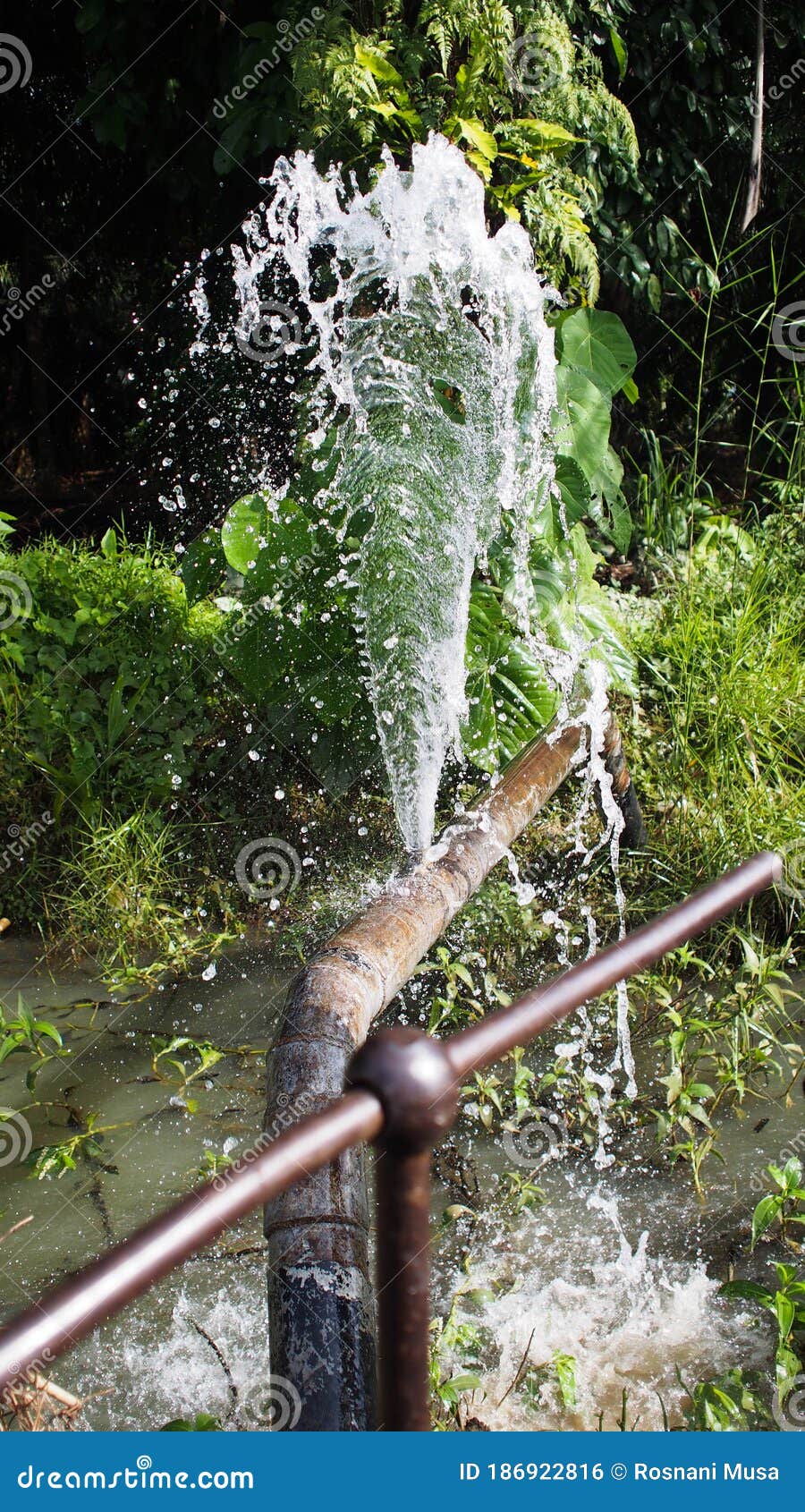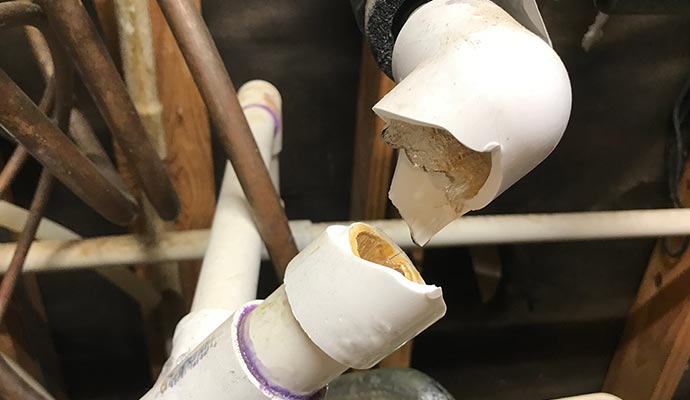Emergency Burst Pipe Services: Fast Response to Avoid Extensive Damage
Emergency Burst Pipe Services: Fast Response to Avoid Extensive Damage
Blog Article
Preventing Ruptured Water Lines: Necessary Tips to Protect Your Pipes
Stopping ruptured pipelines is an essential problem for house owners, specifically throughout colder months when the danger of freezing is enhanced. Applying strategic steps such as appropriate insulation, routine assessments, and keeping constant indoor temperature levels can substantially lower the probability of pipe failing. In addition, recognizing emergency treatments equips property owners to react promptly to prospective pipes concerns. Nevertheless, numerous are uninformed of the particular vulnerabilities that their pipelines may face. Discovering these vulnerabilities can offer invaluable understandings into protecting your pipes system effectively.
Understand Pipe Vulnerabilities
Recognizing pipe vulnerabilities is necessary for efficient plumbing maintenance and stopping pricey damage. Several elements add to the vulnerability of pipes to bursts, including product make-up, age, and ecological problems. Older pipes, especially those made from galvanized steel or polybutylene, commonly weaken gradually, bring about increased risk of leaks and tears.
Temperature variations can also significantly impact pipeline stability. In chillier climates, water trapped in pipes can freeze, expanding and exerting stress on the pipeline walls, which may ultimately lead to a burst. High water stress can stress pipes, specifically at bends and joints, increasing the possibility of failing.

Insulate Water Lines Correctly
Correct insulation of pipelines is vital for stopping cold and succeeding bursts throughout winter (burst pipe). Shielding your plumbing system properly safeguards against temperature drops that can cause pricey damage. Begin by identifying at risk areas where pipelines are exposed to exterior temperatures, such as basements, attics, and exterior wall surfaces
Usage foam pipeline insulation sleeves or cover insulation tape around these locations to offer a safety obstacle. Make certain that all areas of the pipelines, specifically those with limited warmth exposure, obtain ample insulation. Pay unique focus to joints and fittings, as these are more susceptible to freezing.
When shielding, it's essential to choose products that meet regional building regulations and are appropriate for the specific atmosphere. For circumstances, fiberglass insulation is commonly suggested for its thermal resistance properties - burst pipe. Additionally, consider using warmth cords or tape in extreme conditions, which can be plugged in to provide supplementary warm
Frequently examine insulated pipes for any kind of indicators of wear or damages, as jeopardized insulation can reduce its effectiveness. By taking these proactive measures, you significantly decrease the risk of pipeline ruptureds, making certain a trustworthy plumbing system throughout the winter season months.
Maintain Regular Temperature
A stable interior temperature is crucial for avoiding burst pipelines during the cold months. When temperature levels drop, water within pipelines can ice up, creating and increasing stress that may inevitably trigger the pipelines to ruptured. To mitigate this threat, house owners should keep a consistent temperature level throughout their space, preferably no lower than 55 ° F(13 ° C)Using a programmable thermostat can aid handle interior temperatures properly, making certain that areas with pipes continue to be cozy also when your home is empty. Pay special interest to locations that are more susceptible to chilly, such as garages, attics, and basements. Keeping closet doors open under sinks can additionally permit warmer air from the home to circulate around plumbing.
This minor circulation of water can protect against cold by alleviating pressure within the pipes. By carrying out these techniques, house owners can substantially reduce the risk of pipeline bursts and safeguard their plumbing systems versus the severe winter months aspects.
On A Regular Basis Evaluate Pipes
Regular assessments of plumbing systems are critical for protecting against burst pipelines and maintaining general home integrity. Throughout these inspections, it is necessary to take a look at visible pipelines for indicators of corrosion, leakages, or wear.
Furthermore, inspecting joints and links is crucial, as these factors are typically at risk to leaks. Home owners ought to additionally assess water stress levels, as extreme pressure can stress the plumbing system and enhance the danger of pipe bursts.
Take into consideration organizing specialist plumbing examinations at least once a year, specifically prior to wintertime, to guarantee your system is prepared for chillier temperatures. By being proactive in your approach, you can protect your home against the turbulent and expensive consequences of ruptured pipes.
Know Emergency Situation Procedures
Understanding emergency situation procedures is essential for every home owner, particularly after conducting normal pipes evaluations. Being planned for a pipes emergency can substantially mitigate damages and save prices. Initially, locate your major water shut-off valve; it is commonly located near the water meter or where the primary line enters your home. Acquaint yourself with its operation, as shutting off the water rapidly can prevent comprehensive flooding.
Next, keep crucial tools convenient. A plumbing emergency set must include a wrench, plunger, and towels, in addition to a flashlight and a container for little leakages. Additionally, think about having the get in touch with info for a relied on plumbing technician conveniently offered, needs to the situation escalate beyond your control.
If you spot a leak or burst pipe, instantly switch off the supply of water and inform your plumbing professional. Record the damages with photos for insurance coverage functions. Recognize the indicators of possible pipes problems, such as uncommon water stress variations or damp areas on walls
Eventually, aggressive expertise and quick action are vital in taking care of pipes emergencies, guaranteeing your home continues to be click here for more protected and decreasing prospective damage.

Verdict
Finally, protecting against burst pipelines requires a complex method that includes understanding pipe vulnerabilities, appropriate insulation, keeping regular interior temperatures, routine examinations, and expertise of emergency situation procedures. By executing these crucial strategies, the threat of pipes failures can be dramatically minimized, thus making certain the durability and efficiency of the Our site plumbing system. Aggressive procedures not only protect against possible damage yet likewise add to general water conservation and the protection of property.
In chillier climates, water caught in pipelines can freeze, expanding and putting in pressure on the pipeline walls, which may inevitably lead to a ruptured. When temperatures decrease, water within pipelines can freeze, creating and increasing stress that may ultimately trigger the pipelines to burst. By implementing these methods, house owners can dramatically reduce the danger of pipe ruptureds and guard their plumbing systems versus the severe winter months components.

Report this page